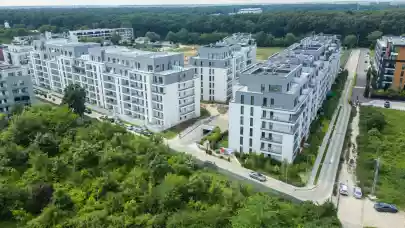
German residential investors are increasingly turning to foreign markets, with Poland emerging as a particularly attractive destination. High construction costs, long approval processes, and regulatory uncertainty in Germany are pushing investors to look abroad. In countries like Poland and the USA, planning and permitting procedures can take just a few months, compared to years in Germany. Trei Real Estate, for example, has shifted its focus to Polish cities such as Poznań and to fast-growing areas in the southeastern United States to take advantage of clearer and faster approval systems. Rueckerconsult GmbH summarised the trend in a recent press release.
During an online press conference titled "Beyond Germany: Why residential investors are shifting their focus abroad," industry leaders discussed this trend. Felix Meyen of HIH Invest Real Estate highlighted that supply shortages and rising costs in Germany are making projects less attractive, leading the company to invest more in stable Western European cities like Vienna, Amsterdam, and Dublin. Similarly, Catella Investment Management pointed to the appeal of markets in Scandinavia and Ireland, which offer high yields, strong market transparency, and limited regulation.
Japan was also mentioned as a strong alternative, with Tokyo standing out for its stable rental income, low vacancy rates, and supportive regulatory environment. Savills Investment Management has expanded significantly in Tokyo, viewing it as a stable anchor in a volatile global market.
Despite these shifts, German investors still see value in their home market but stress the urgent need for structural reforms. Faster approval processes, simplified technical standards, and stronger cooperation between public authorities and private developers are essential to restore Germany’s competitiveness. Meanwhile, Poland’s efficient permitting process and robust market fundamentals position it as a key beneficiary of this shift in investment focus.



